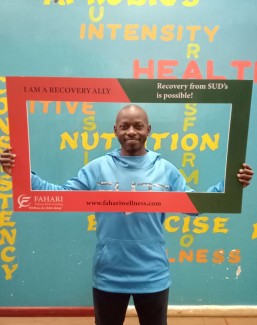HEALING BEYOND SOBRIETY

Recovery is more than achieving sobriety – it is about building resilience for lifelong wellness. While traditional addiction treatment focuses on abstinence, true recovery requires comprehensive post-treatment support that addresses mental, emotional, and behavioural health.
Elevating Recovery Through Integrated Mental Health Care
Substance use disorders often stem from trauma, stress, or co-occurring mental health conditions. Without structured emotional care, individuals in recovery face higher relapse risks, struggling with triggers that therapy could help manage. That’s why integrating mental health care into recovery programs is essential; it provides the psychological tools needed to sustain sobriety and foster long-term healing.
Why mental health care strengthens recovery
Firstly, managing emotional triggers is necessary because many relapses occur due to untreated anxiety, depression, or stress. Therapy models like CBT, trauma-informed care, and mindfulness equip individuals with healthy coping strategies. Secondly, rebuilding connection and purpose where recovery thrives in the community - whether through peer mentorship, faith-based support, or structured aftercare, social bonds reduce isolation and strengthen motivation. Thirdly, rewiring thought patterns for resilience comes in handy. Addiction alters brain chemistry, making behavioural interventions like goal-setting, habit-building, and emotional intelligence training vital for lasting transformation.
Strengthening collaboration between mental health and recovery experts
To reshape the future of addiction care, mental health and recovery professionals must work together. Bridging the gap between abstinence-based models and whole-person healing strategies. This ensures individuals receive layered support beyond detox, allowing them to stay mentally, emotionally, and socially stable post-treatment.
Redefining Recovery
This Mental Health Month, let’s reinforce recovery beyond sobriety. As professionals, we have the power to expand mental health interventions within addiction treatment, ensuring individuals receive full-spectrum wellness care – let’s not forget collaborations. At Fahari Wellness & Life Coaching, we are committed to faith-centered recovery and integrated approaches that encompass structured mental health coaching and resilience-building programs. Let’s create more spaces to empower individuals to sustain recovery with strength and stability.
Parting question: How can we improve mental health integration in recovery programs?